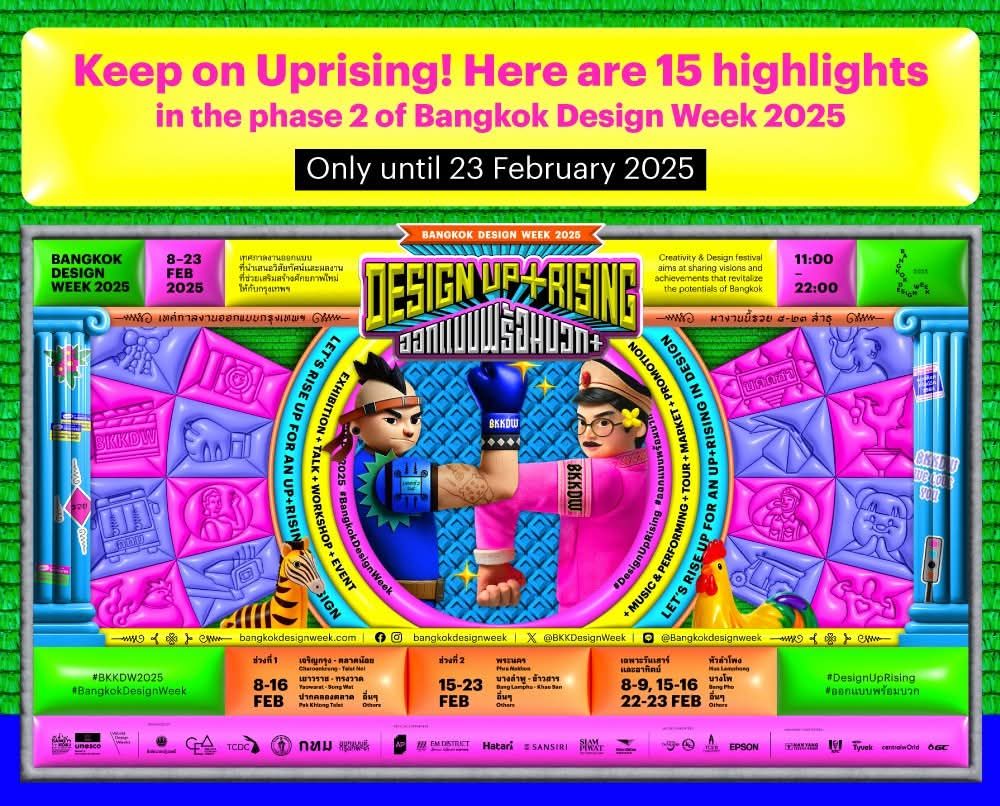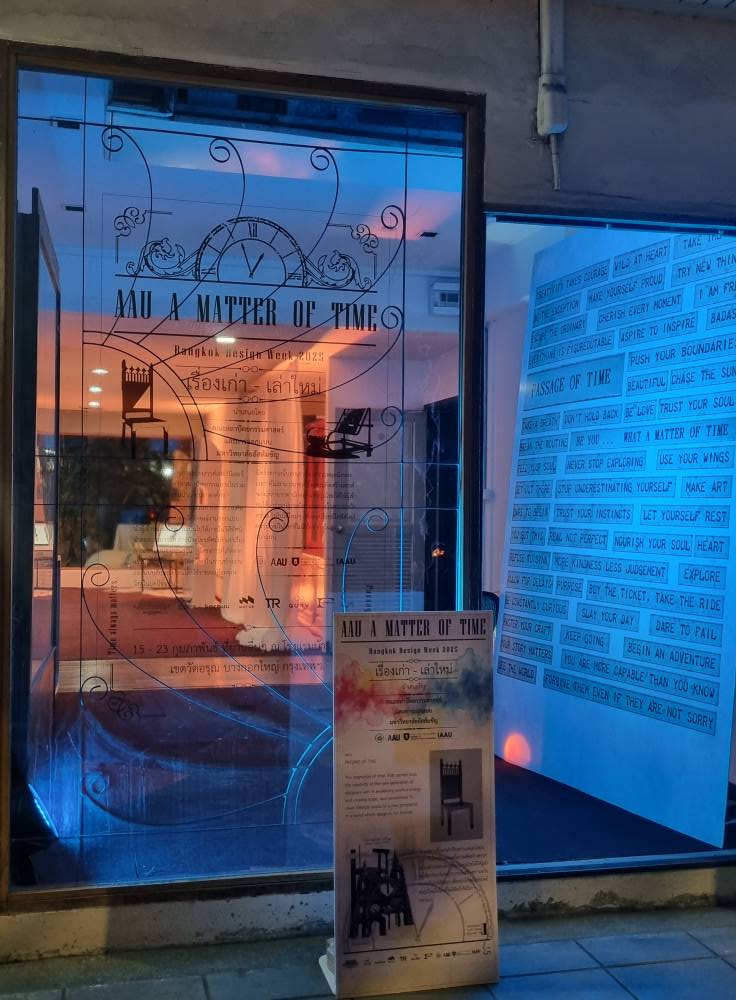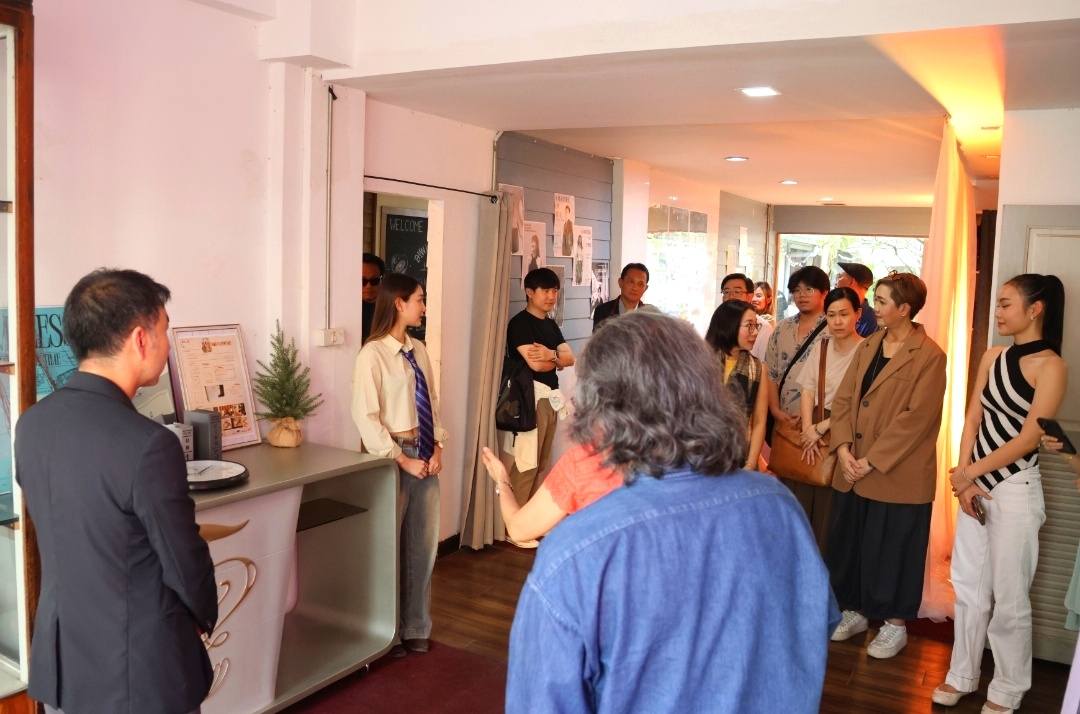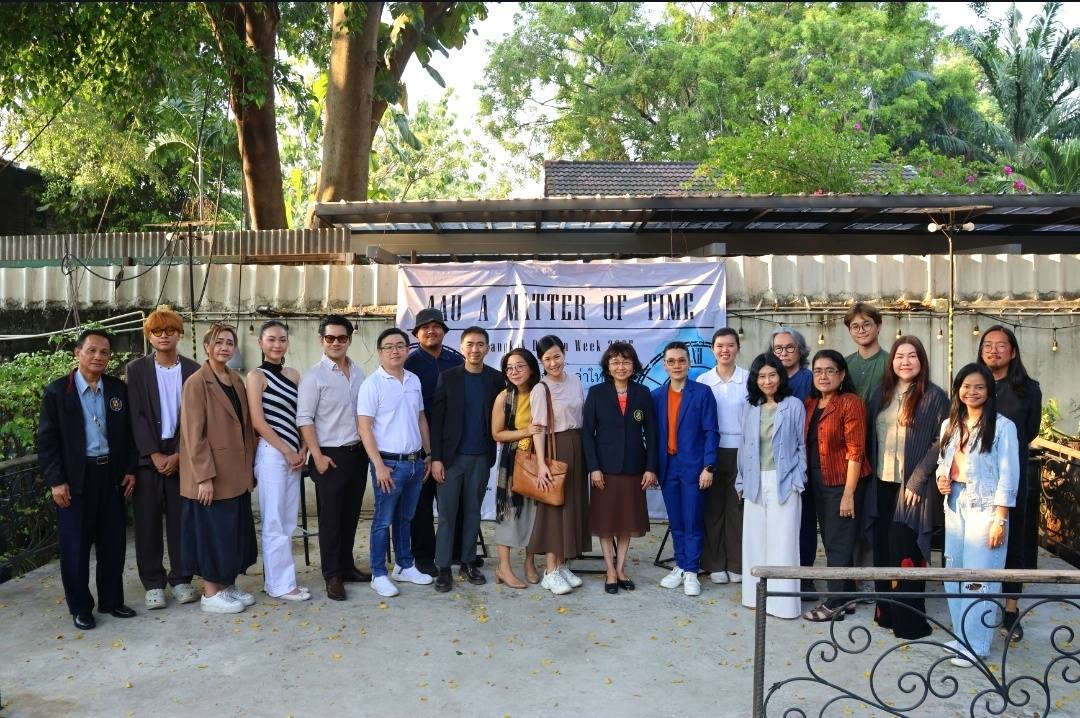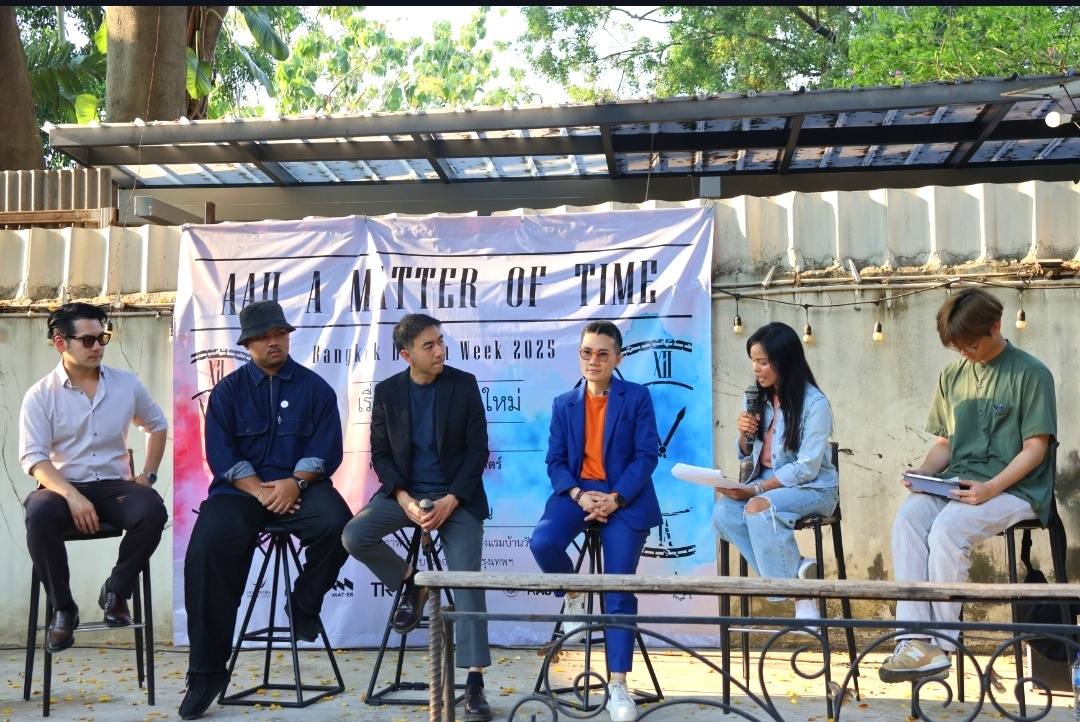| The School of Architecture and Design at Assumption University (AAU) proudly presents “Design Up+Rising”, an academic exhibition program featured as part of Bangkok Design Week 2025. Under the theme “A MAT-TER OF TIME: Reinterpreting the Old into the New”, the exhibition showcases installation art, design displays, and academic dialogues that bridge history and contemporary creativity.
Curated by Aj. Orn-laor Homsethee, lecturer in the Department of Interior Architecture, the exhibition highlights innovative student projects engaging with urban culture and design practice. Now in its fifth consecutive year at Bangkok Design Week, “Design Up+Rising” blends academic learning with real-world application through IN2308: Furniture Design, a course where students develop forward-thinking concepts with practical potential for production. This year, five student projects were brought to life through collaboration with leading furniture brands and designers, featuring works by:
The showcased pieces were supported by MATER, QURV, KOCHUU, TANYARIN, and HOMEWORK FABRIC, reflecting strong ties between academia and the creative industry. Set in the chic and historic Baan Wangderm Hotel in Bangkok Yai, the exhibition embodied the theme of blending old and new. The immersive environment was further enhanced through the contributions of Ms. Piyanat Dabbhasuta (site supervisor) and Ms. Peeraanong Wongtanakornchai (lighting designer), both lecturers from the Department of Interior Architecture. Adding an academic dimension, a special talk titled “Semiotics of Style: Decoding Timeless Charms in Furniture Branding” was delivered by Asst. Prof. Chutarat Laomanacharoen, lecturer in the Department of Multidisciplinary Design at AAU. The session offered insights into aesthetics and cultural meaning in design, explored through embodied cognition and semiotics. Relevant SDGs:
|
